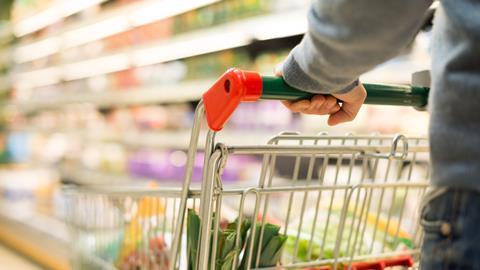The recent WWF report, What’s in Store for the Planet 2024, assesses progress towards meeting deforestation commitments, highlighting insufficient action by UK supermarket chains on deforestation and ESG-related issues, including diets, agriculture, packaging, climate change and food waste. Using publicly available data, WWF examined retailers’ sourcing practices for key commodities—soy, palm oil, cocoa, and beef—and assessed progress against the 2030 deforestation target.
The findings are worrying. To achieve the 2030 goal of halting deforestation, supply chains must be deforestation and land conversion-free (DCF) by 2025. Yet, the WWF analysis suggests that only 0.3% of cocoa in the UK’s food retail value chain is verified as DCF, with soy slightly better at 4.5%. These figures highlight the urgent need for improvement and reinforce WWF’s call for 'robust DCF legislation' to help retailers meet their commitments.
The WWF’s findings follow global pledges made at COP26 in Glasgow, where world leaders committed to ending and reversing deforestation by 2030. Three years later, progress remains slow and uneven. Legislative measures in both the EU and the UK have been criticised for lacking sufficient speed and scope.
The EU Deforestation Regulation (EUDR) entered into force in June 2023. It mandates rigorous supply chain due diligence to ensure products are not linked to deforestation or land degradation. Covering commodities such as cattle, cocoa, coffee, oil palm, rubber, soy, and wood, the regulation imposes substantial obligations on businesses. Companies must submit due diligence statements to authorities and are prohibited from marketing non-compliant products. Violations carry severe penalties, including fines of up to 4% of Union-wide turnover and confiscation of revenues.
Despite its ambitious goals, it has not been smooth sailing for the EUDR. Initially scheduled to apply from December 2024, a late-stage agreement extended deadlines: large operators now have until December 2025, and micro and small enterprises until June 2026. These delays reflect the complexity of meeting the regulation’s requirements and concerns from stakeholders.
Despite this year-long delay, the EU seems further ahead than the UK on this issue.
The Environment Act 2021, passed during the UK’s COP26 presidency, includes provisions addressing deforestation. Schedule 17 prohibits the use of 'forest risk commodities' and mandates a due diligence framework for businesses. However, there is still no clear indication of when such regulations will be introduced. A consultation in 2021-2022 identified likely in-scope commodities like cattle (excluding dairy), palm oil, soy, and cocoa, but this list is narrower than the EUDR’s, omitting items like coffee, rubber, and wood.
Both in its manifesto and post-election, the Labour government has indicated its commitment to the targets set out under the Environment Act, which may suggest that secondary regulations are on the horizon.
With stricter regulations ahead, companies involved with forest risk commodities must prepare to ensure compliance. Failure to do so could result in regulatory sanctions and legal challenges from NGOs and stakeholders. Cases such as Envol Vert v Casino, illustrate the potential for litigation. NGOs sued French supermarket chain Casino under the 2017 French Corporate Duty of Vigilance Law, over products allegedly originating from the cattle industry in the Amazon. Such cases are likely to increase as supply chain due diligence requirements grow.
Retailers, particularly supermarkets, have a vital role to play in efforts against deforestation as their purchasing power enables them to influence supply chain practices. However, as the WWF report highlights, many fall short of their potential. Distance from suppliers in large and complex global supply chains will not absolve companies of responsibility. Indeed, that is the very purpose of value chain legislation like the deforestation regulations and other mHREDD legislation like the EU’s CSDDD.
As 2030 approaches, pressure on businesses to meet deforestation targets will intensify. Companies must invest in supply chain audits and robust due diligence systems. Beyond regulatory and liability risks, failure to act brings significant reputational consequences.
Leaders within the supermarket industry, already facing serious challenges on affordability and high reputational risks, will be gearing up for compliance, and if the WWF report accurately reflects the current status of action in tackling this issue, the task could be formidable.
Read WWF's report here.
Wynne Lawrence is partner at Clyde & Co
































No comments yet